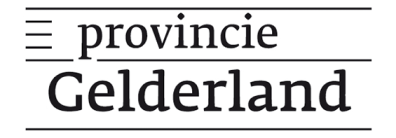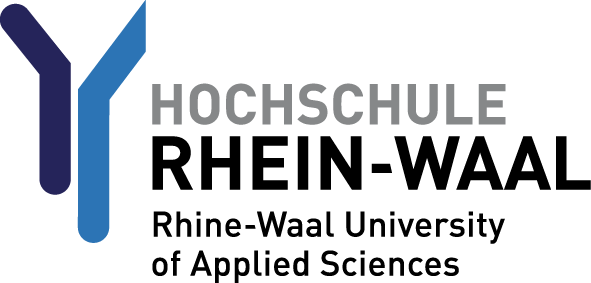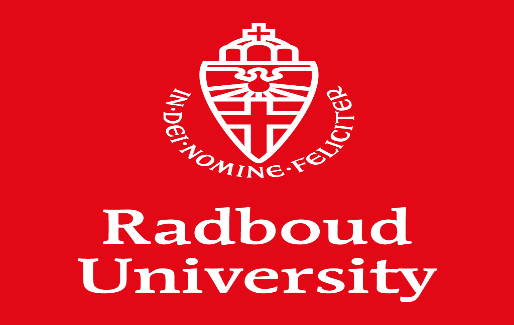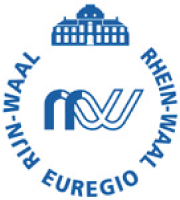TRAM
transnational labor migration in the Euregio
Background
Migrant workers make up a significant proportion of the workforce in food production and agriculture in the Euregio region. The working and living situation of many transnational migrant workers is very precarious, and in the border region, a confusing legal situation made it possible to exploit transnational migrant workers.
Objectives
- For the first time, TRAM comprehensively examines the experiences of transnational migrant workers in the meat industry and agriculture living on the German side of the border in the Euregio Rhine-Waal and employed in the Netherlands and North Rhine-Westphalia
- Establishment of cross-border exchange structures for social counselling
Expected results
- Findings on the living and working situation of transnational labor migrants in the Euregio/NRW
- Development of models for good work and housing for transnational labor migrants
- Action plan for cross-border Social Counselling
Publications
- Jungwirth, Ingrid/ Glassner, Marius (2025): Transnationale Arbeitsmigration in der Euregio Rhein-Waal – Eine Untersuchung in der Fleischindustrie und in der Landwirtschaft. In: Arbeits- und Industriesoziologische Studien, 18 (1), 73-89. ISSN 1866-9549
- Gottlieb, Nora/ Jungwirth, Ingrid/ Glassner, Marius/ de Lange, Tesseltje/ Mantu, Sandra/ Forst, Linda (2025): How did governments protect immigrant workers in the meat industry during the COVID-19 pandemic? Insights from a comparative policy analysis in Germany, the Netherlands, and the USA. In: Globalization and Health 21, 10 (2025). https://doi.org/10.1186/s12992-025-01104-9
- Jungwirth, Ingrid/ Glassner, Marius (2024): Transnational work migrants in the
Euregio Rhine-Waal: Cross-border mobility in the meat processing industry and agriculture in a transnational labor market between East and West. In: Political Science Applied, 15, pp. 38-42. ISSN 2306-5907 - Jungwirth, Ingrid/ Glassner, Marius (2024): Arbeitsmigration zwischen den Grenzen – Arbeits- und Lebenssituation von Arbeitsmigrant*innen in relevanten Sektoren in der Euregio Rhein-Waal. Kleve: Hochschule Rhein-Waal. The report can be downloaded from the Downloads section at https://www.hochschule-rhein-waal.de/de/fakultaeten/gesellschaft-und-oekonomie/forschung/forschungsprojekte/arbeitsmigration-zwischen-den.
Funded within the framework of Interreg VI A
![]()

Updates
-
The second Field Lab Work and Employers is being held in cooperation with the Working Group on Housing and Living Together and will take place on January 22 from 1:00 p.m. to 4:00 p.m. at the Rheinische Pilz-Zentrale in Geldern (Milchweg 66, 47608 Geldern). The event is planned as an excursion to a mushroom farm where migrant workers are employed and housed nearby. Working and living conditions will be presented during a tour of the farm. This will be followed by a discussion with employers from Germany and the Netherlands. A program will be sent out shortly.
Anyone who is already interested in participating is welcome to contact Marius Glassner at marius.glassner@hochschule-rhein-waal.de.
Events & Press
- On October 16, the second Law Clinic in the TRAM project took place at Rhine-Waal University of Applied Sciences. This was a practical workshop for employees of counseling centers who work with migrant workers in the border region. This time, the focus was on the topic of termination of employment. Together with legal experts from Germany (Aktion Würde und Gerechtigkeit e. V.) and the Netherlands (Het Juridisch Loket), differences in German and Dutch labor law were discussed, for example with regard to notice periods and temporary employment relationships. It became particularly clear how complex the legal situation of transnational migrant workers is, especially in a cross-border mobile context. The aim of the event was to strengthen counseling centers in the border region and to deepen knowledge of termination law issues in the German-Dutch context. As with all TRAM events, this Law Clinic also provided an opportunity for professional exchange. An updated contact list containing all known relevant contact points for migrant workers is intended to facilitate networking between advice centers in the Euregio in the future. A total of three Law Clinics are planned for the TRAM project. The third event is scheduled for spring 2026. Further information will follow on the TRAM website and in the project's newsletter.
- On July 10, the second Field Lab in the field of social counseling/sociale begeleiding took place at Rhine-Waal University as part of the TRAM project. The event served as a forum for professional exchange between social counseling centers and provided insights into key aspects of counseling practice. To kick things off, project results on the registration situation and known accommodations for migrant workers in the Kleve district were presented. The data is based on municipal surveys and was classified in the context of census and central register of foreign nationals data. One thematic focus was on victim protection. Joachim Verhoeven from the Kleve district police reported on practice in Germany and presented differences to the structures in the Netherlands. The importance of sensitive handling of victims and the need for suitable accommodation became particularly clear. The second part dealt with addressing migrant workers, both online and offline. Contributions from Szabolcs Sepsi (Faire Mobilität), Traian Danciu (Arbeit und Leben NRW), and Monique Gerrits-Hooijer (Zorg- en Veiligheidshuis Noord-Limburg) showed how important targeted outreach, especially in the native language, is for accessing the target group. Finally, there was a discussion on how advice centers in the border region can better publicize their services. The targeted use of social media, as already tested in the project “Fair support for labor migration,” was mentioned as a promising approach.
- On May 20, 2025, as part of the Interreg project TRAM, a field lab was held at a horticultural company in Horst aan de Maas on the topic of “Accommodation for migrant workers – good practices, new instruments, and future developments.” The aim was to showcase successful accommodation for work migrants and discuss current developments in legislation and local politics. After a tour of the company's own accommodation, three experts presented different perspectives (Kamiel Bartels, agricultural consulting firm Arvalis; Sjang Drabbels, project manager for international workers at the municipality of Venlos; Stéphanie Groothedde, legal advisor to the Association of Netherlands Municipalities (VNG)). The discussion showed that the housing shortage is a challenge in terms of both quantity and quality. Rising standards lead to higher rents – a conflict between quality and affordability. In addition, new Dutch regulations could increase pressure on German border communities.
- On April 29, 2025, the Social Counseling/Sociale Begeleiding working group held a Law Clinic as the first thematic project activity in the TRAM project. The event will took place at the Rhine-Waal University of Applied Sciences. The Law Clinic offered counseling centers for migrants the opportunity to receive support from legal experts on specific cases from social counseling. Thanks to the expertise of Klaus Körner (Aktion Würde und Gerechtigkeit e.V.) and Gosia Szymaniak (Het Juridisch Loket), concrete case studies from both countries could be discussed and compared. The aim of the TRAM Law Clinic is to improve legal support for people working across borders and to network counseling centers. Two further Law Clinics are planned for 2025 and 2026. Information will follow here on our homepage and in the quarterly TRAM newsletter.
- On March 13, 2025, the project was presented to an interested specialist audience in the lecture TRAM – transnational labor migration in the German and Dutch meat industry in the Euregio Rhine-Waal region(TRAM – transnationale Arbeitsmigration in der deutschen und niederländischen Fleischindustrie in der Euregio Region Rhein-Waal) in the workshop Working and Surviving: Current Research on the Meat Industry (Arbeiten und Überleben: Aktuelle Forschungen zur Fleischindustrie) at the Sociological Research Institute (SoFi) Göttingen.
- On January 22, 2025, the workshop “Good Work - Attracting and Retaining Workers from South-Eastern Europe”, planned by the working group Arbeit und Betriebe/ Arbeid en Bedrijven, took place at Haus Riswick in Kleve. The workshop was organized in collaboration with the Chamber of Agriculture of North Rhine-Westphalia (Landwirtschaftskammer NRW) and was aimed at employers in the agricultural sector. The central question was how to recruit migrant workers fairly and retain them on farms in the long term. Legal and collective bargaining conditions, tips for fair recruitment, the basics of respectful communication on farms, and ways to integrate migrant workers were presented. The participants discussed problems in the hiring process, the fierce competition for workers and in relation to intercultural communication, as well as possible solutions. Farms on both sides of the border face major challenges in employing workers. Further exchange and the development of models for good work and good housing can provide a way out of numerous problematic situations – not only for the employment of migrant workers, but also for good cooperation on farms in general. The program can be found at: https://hochschule-rhein-waal.sciebo.de/s/LYO47xZTzVSxud7
- On July 12, 2024, the project was presented to a scientific audience in the lecture Transnational Labor Migration in the Euregio - an Investigation in the Meat Industry and Agriculture (Transnationale Arbeitsmigration in der Euregio – eine Untersuchung in der Fleischindustrie und Landwirtschaft ) at the Section Work- and Industry Sociology of the German Sociological Association (Sektion Arbeit und Industrie der Deutschen Gesellschaft für Soziologie). The spring conference was entitled Migration and Work - Current Research, Methodological Reflections and Theoretical Implications (Migration und Arbeit – Aktuelle Forschungen, methodische Reflexionen und theoretische Implikationen).
- On July 4, 2024, the first Field Lab in the field of Work and Companies (‚Arbeit und Betriebe/ Arbeid en Bedrjiven‘) took place at Rhine-Waal University of Applied Sciences. The aim of the meeting was firstly to network stakeholders and secondly to plan a workshop initially aimed at employers from the agricultural sectoron the German side of the border who employ migrant workers. The workshop, planned in cooperation with the Chamber of Agriculture of North Rhine-Westphalia (Landwirtschaftskammer Nordrhein-Westfalen), will be titled "Good Work - Attracting and retaining workers from South-East Europe". The workshop will be divided into the areas of management, on-boarding and best practice. The plan is to hold the workshop in Germany in January 2025 and also open it up to Dutch companies that are interested. More information will follow on this page.
- On June 27, 2024, the second part of the first Field Lab in the field of Social Counseling (‚Soziale Beratung/ Sociale begeleiding‘) took place at Rhine-Waal University of Applied Sciences. The aim of the Social Counselling Field Lab was to network employees from various counselling services on both sides of the border, gain an insight into the working methods and responsibilities on both sides of the border, get to know counselling cases and gather questions and interests of the counselling organizations for the TRAM project. Among other things, needs for a planned law clinic were to be compiled. Together with participants from various areas of social counseling in Germany and the Netherlands, it was determined that an overview of counseling centers with contact addresses on each side of the border would be of great benefit, as would an overview of the most important regulations for better understanding.
- On June 11, 2024, the first Field Lab on Housing and Living Together (‚Wohnen und Zusammenleben/Huisvesting en Samenleben‘) took place at the Radboud University in Nijmegen. The aim of this meeting on housing was to bring together employees and other officials from German and Dutch municipalities and regions to discuss bottlenecks and solutions for housing migrant workers in the border region and to gather ideas for follow-up activities. The participants of the meeting came from 14 different municipalities, regions or districts. In addition to three insights into the different ways in which municipalities deal with the sometimes precarious situation of migrant workers, questions were asked about the most important cross-border dimensions for improving the situation. This revealed the relevance of cross-border exchange and the joint tackling of problems such as the difficulty of exchanging data. The central topics are to be addressed and discussed in further meetings in order to develop solutions.
- On April 18, 2024, the project report of the TRAM pilot project "Work migration between borders - work migrants’ work and life conditions in relevant sectors in the Euregio region of Rhine-Waal" was presented to the Committee on Construction, Housing and Digitization of the NRW State Parliament. The report can now be downloaded in the Downloads segment at https://www.hochschule-rhein-waal.de/en/faculties/society-and-economics/research/research-projects/work-migration-between-borders-work
- On February 22, 2024, the first Field Lab on the topic of social counselling took place in cooperation with the Ministry of Labor, Health and Social Affairs of the state of NRW and the Ministry of Home Affairs, Municipal Affairs, Building and Digitalization of the state of NRW.
- On February 1, 2024, the public opening event of Project TRAM took place at the Euregio Forum of the Euregio Rhine-Waal in Kleve. Several media outlets reported about the event: i.e. https://www1.wdr.de/nachrichten/rheinland/leiharbeiter-ausbeutung-hochschule-kleve-100.html (German) and https://www.youtube.com/watch?v=1JAkHigrCnQ (Dutch)
- On December 6, 2023, the project was presented at the Borderland Conference in Nijmegen in the workshop "Supporting Migrant Workers"
- On November 30, 2023, the project was presented at the Laboratorium Niederrhein in Wesel. The NRZ also reported on this: https://www.nrz.de/staedte/kreis-wesel/niederrhein-beim-menschenhandel-nicht-wegsehen-id240748826.html
- On November 24, 2023, the third-party funded project "TRAM – transnational labor migration in the Euregio" started with a kick-off event at the Faculty of Society and Economics, Rhine-Waal University of Applied Sciences. The project, which is funded within the framework of Interreg VI, will be carried out under the project management of Prof. Dr. Ingrid Jungwirth in cooperation between Rhine-Waal University of Applied Sciences (research assistant Marius Glassner), Radboud Universiteit (Dr. Pascal Beckers and Dr. Anita Böcker) as well as the Gemeente Apeldoorn (Iezte Oostinga) and Euregio Rhine-Waal (Andreas Kochs) until 2026. The overall objective of TRAM is to improve the working and living conditions of transnational migrant workers in the Euregio by establishing cross-border exchange structures for social counselling. Further information about the event can be found at: https://idw-online.de/de/news826502.
Project partners
Hochschule Rhein-Waal, Radboud Universiteit, Gemeente Apeldoorn, Euregio Rhein-Waal




Project management
Prof. Dr. Ingrid Jungwirth
Professor of social sciences with a focus on diversity and inclusion
ingrid.jungwirth@hochschule-rhein-waal.de
Research assistant
Marius Glassner
marius.glassner@hochschule-rhein-waal.de
Student assistant
Dragoș Moroșanu
Dragos.Morosanu@hochschule-rhein-waal.de
Cristina Baiura
Cristina.Baiura@hochschule-rhein-waal.de
Cooperation partners
Anita Böcker, Pascal Beckers (Radboud Universiteit, NL)
Adriaan Von Harenberg (Gemeente Apeldoorn, NL)
Andreas Kochs (Euregio Rhein-Waal, G)
Running time
06/23 – 01/27
